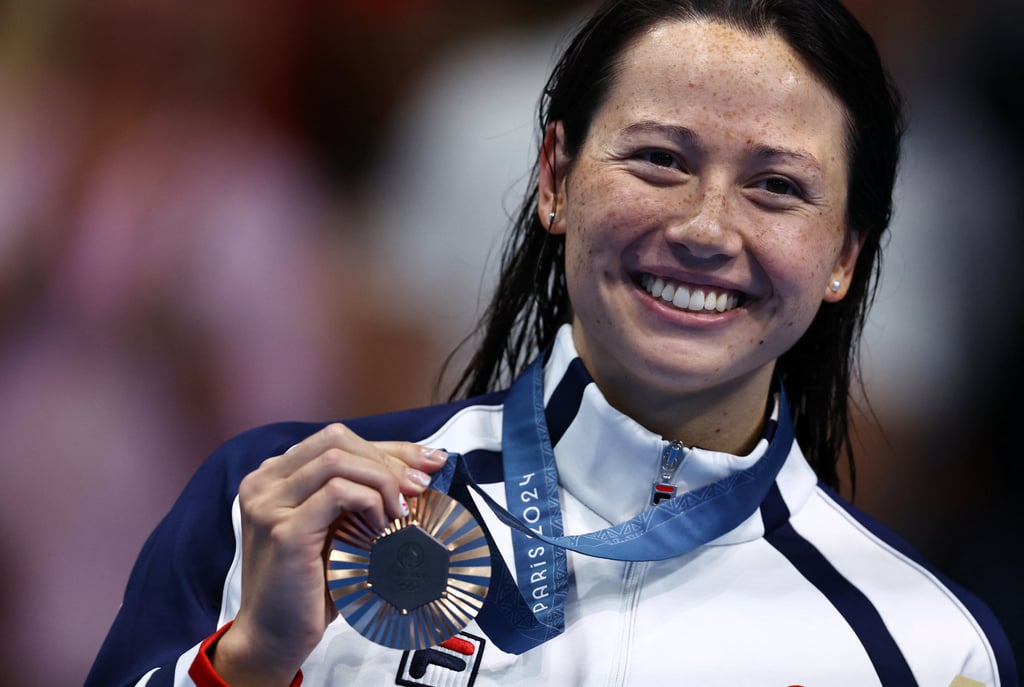Hong Kong’s Olympic success shows government investment, policies on right path: minister
Hong Kong made history with its Olympic success at the Paris Games, with two gold medals won by foilist Cheung Ka-long and épéeist Vivian Kong Man-wai, respectively.
The pair were joined on the medal tallies by swimmer Siobhan Haughey, who won two bronze medals.
In Tokyo, Cheung won gold in the same event, while Haughey won two silver medals. The city won a total of six medals throughout the games.
Yeung noted that developing the city’s elite athletes was not something that could be achieved within the past one or two years, noting that Hong Kong’s two gold-medal winning fencers had taken part in three Olympics games.
He added that long-term investment, societal participation in sports and a change of attitudes among the public were also necessary to nurture top athletes.
“A dozen or so years ago, parents did not like their children to fully immerse themselves in sports, believing that studying may be more important,” he said.
“We have seen some changes in the past few years. This could be related to the government being more involved in helping our elite athletes, for instance, their arrangements after their retirement, such as study or work. This would allow parents to be more at ease compared to before.”
The minister also addressed Kong’s shock retirement announcement and her new role as an assistant external affairs manager at the Hong Kong Jockey Club, adding that he “absolutely” supported and respected her decision.
“I think all athletes will have a day where they will retire. A lot of times sports will require a certain amount of physical strength or training,” he said.
“Everyone knows that she has already participated in three Olympic Games. Everyone also knows that she has been injured, so I think as a personal decision, we absolutely support and respect her decision.”
Yeung also noted Kong’s new role at the Jockey Club, saying that the organisation was a ‘good employer’ and that it was most important that she was able to find opportunities and a working environment where she could thrive.
“I hope she can fully utilise her abilities there and that she could give back to society through the Hong Kong Jockey Club,” he added.
Speaking in another radio programme, Yeung also urged the business community to consider hiring former athletes due to their ability to face adversity.

The minister also confirmed on Saturday that authorities were making arrangements for a visit from gold-medal winning mainland Chinese athletes to Hong Kong, with Yeung hoping that they would be able to come to the city this month.
The Post previously reported that these athletes would visit tentatively in late August, in line with previous arrangements where Olympians met Hongkongers after the conclusion of the Games.
It is unclear how many or which mainland Olympic athletes will join.
Olympic delegations from the mainland have paid visits to the city since Hong Kong returned to Chinese rule in 1997.
In the last Games in Tokyo in 2021, the national team won 38 gold medals, 32 silver medals and 18 bronze medals.
The gold medal-winners visited Hong Kong in December for three days, treating residents to performances in sports such as badminton, fencing, gymnastics, table tennis, diving and swimming.